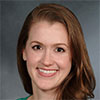You’ve completed medical school, residency and maybe even a fellowship. Congratulations! Now it’s time to get your board certification from the American Board of Ophthalmology (ABO), a process that may take you a year or more to finish.
Why Does Board Certification Matter?
The ABO’s primary mission is to serve the public by ensuring that you are qualified to treat eye and vision problems with medical and surgical methods. This is in contrast to societies and subspecialty organizations we join, which primarily serve ophthalmologists through educational programming and advocacy. Board certification is also important for your future job prospects and is something many practices will require before hiring new physicians.
There are three steps to board certification:
- Get attestation from your residency program that you have met the minimum standard for practice and are surgically competent.
- Pass the written qualifying examination.
- Pass the oral examination. By fulfilling these steps, the board is able to certify that you have the knowledge, skills and experience to practice ophthalmology safely and effectively.
How Do I Register?
The written exam is administered once a year in autumn, and the registration window is open from February until July 1 of the same calendar year, with late registration available from July 2 to Aug. 1 for an additional fee. This year’s written exam will be administered on Saturday, Oct. 9. You can register through the board’s website at https://abop.org.
For some recent residency graduates, sitting for the written exam during the same year as graduation may not make sense for myriad personal reasons. The ABO’s eligibility policy requires you to complete board certification requirements within seven years of residency graduation, which means you have some time if you wish to defer. Log in to the ABO website and provide a valid email and phone number so that you can be reminded when registration opens in future years.
Studying for the Exam
Start studying! For many graduates, your study strategy will resemble how you studied for the Ophthalmic Knowledge Assessment Program (OKAP) exam. Consider making a study plan and timeline, and don’t get too far into the weeds on nuances of subspecialty-level topics. You want to be efficient, and the exam is designed to test the knowledge expected of a comprehensive practitioner. The written exam outline may help you think about how to allocate your study time (https://abop.org/media/134525/wqe_content_outline.pdf).
In the days leading up to the test, try not to cram. You’ve spent at least three years learning the subject matter of this exam. Trust yourself, exercise, eat healthfully, and try to stay relaxed. Take a few moments to plan your day-of strategy: familiarize yourself with the policies at your testing center regarding hydration and snacks, and then pack the appropriate items in advance.
After the Exam
While you await your results, take comfort in knowing that the vast majority of first-time test takers pass the written exam (86% to 99% over the past five years). Results will be available on the candidate status page about six to eight weeks following the examination.
If you receive a passing score, celebrate! You’ll then need to register for the oral exam. The oral exam will continue in a virtual format at least through 2022. It’s been extremely successful, and strong consideration is being given to preserving this virtual format in the future. Any proposed changes will be announced well in advance.
If you didn’t pass, don’t be discouraged. Regroup and use the score sheet to help identify gaps in your knowledge. You have a full year to design and complete a study plan, and you’ll want to study hard: The repeat pass rate is about 60% for second-time testers and 40% for those taking it a third time.
Additional board resources about the exam are available at https://abop.org. The ABO really prides itself in being accessible and helpful to candidates, so reach out if you have questions or concerns. Good luck!
* * *
 Sarah H. Van Tassel, MD,
Sarah H. Van Tassel, MD, is an ophthalmologist based in New York.